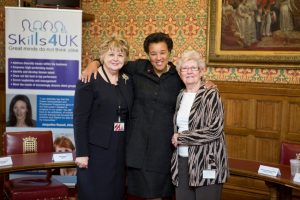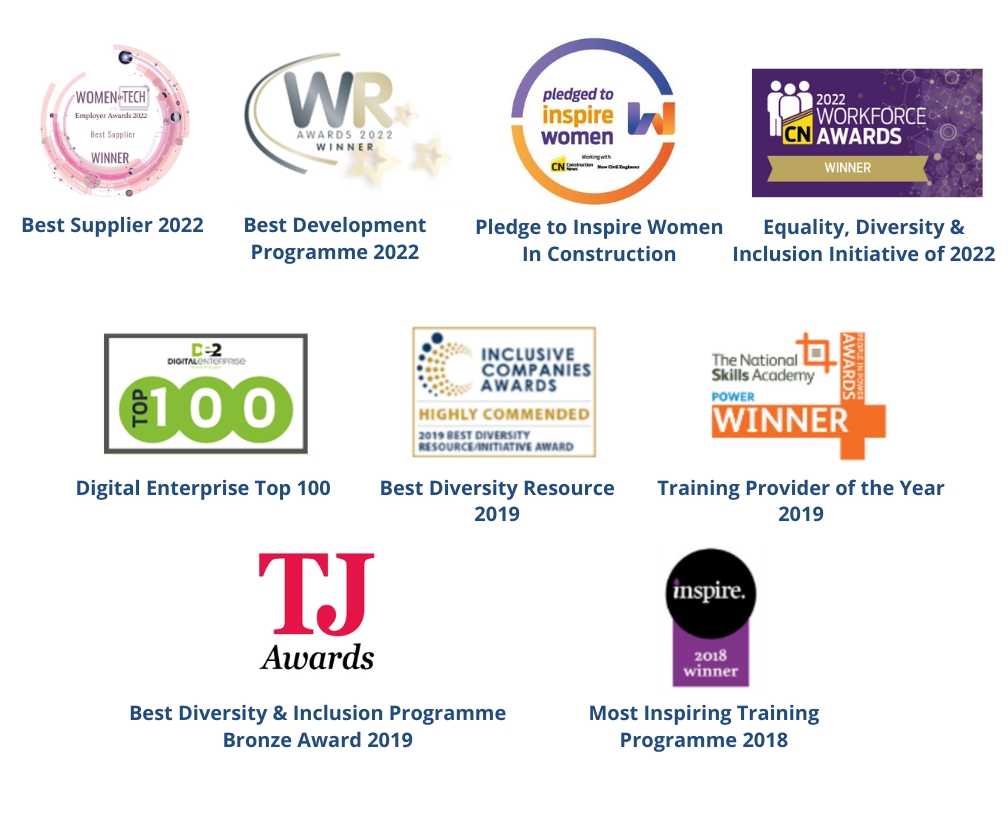
Businesses where men continue to dominate boardrooms and roles in senior and middle management are being urged to do more to enable women to take senior positions. Three Baronesses were among those speaking at a round-table event in the House of Lords 22 March to highlight how gender-diversity training can make a real difference to talented women’s career progression and to business performance.
Organised by Skills 4, a specialist provider of gender-diversity initiatives, the breakfast seminar was hosted by Baroness Margaret Wall. Among the speakers, former Deputy Chair of the Equalities and Human Rights Commission Baroness Margaret Prosser told delegates why businesses need to do more to shape a fairer future, while Baroness Patricia Scotland QC addressed gender issues within the legal profession.
Baroness Scotland warned that the UK was in danger of falling behind competitors, with senior management still not reflecting the complexity of the new client base, particularly in emerging markets where cultural sensitivity can be the determining factor in deciding which pitch wins the bid. “Women entrepreneurs are a growing global force and smart businesses must service this new dynamic if they wish to retain market share and relevance.” She added that gender diversity was an economic imperative, as was the need for companies to reflect it at senior and middle management. “I was the first woman in 700 years to be the Attorney General—let’s hope I am not the last. It infuriates me to continue seeing disparity in wage, achievements and seniority in parts of the legal profession.” She continued, “The way London did the Olympics was a brilliant example of multicultural Britain in action—it is important we take that into business.”
Former Deputy Chair of the Equalities and Human Rights Commission Baroness Prosser told delegates that businesses needed to do more to shape a fairer future. More than £40m was made available by the previous government, which has helped 25,000 women take part in career development programmes between 2006 and 2011. She said it was disappointing that only three sector skills councils have identified funds to support gender diversity and urged the government and the private sector to do more.
Also speaking, Neil Thomas of Atkins, one of the world’s leading engineering, design and project management consultancies and a strong supporter of women in the workplace, said culture needs to change to enable talented women to climb the career ladder. Mr Thomas, Group Managing Director for Atkins’ water and environment division, said the company had many talented women and that 2 of its 9 plc Board Directors (22%) were women but that the company wants to see more women in senior positions throughout the business. He said women in the company had made it clear they did not want preferential treatment; they want the best person to get the job. “There is a strong business case to implement the Skills 4 Career Development Programme if we are to continue attracting women into the business, and give women the confidence and support to develop their careers to their full potential.”
Semta (the Sector Skills Council for Science, Engineering and Manufacturing technologies) funded fifty women through the first Skills 4 programme but Atkins has since funded 70 more women through the programme, drawn from across its UK business. Caroline Brown, Associate Director at Atkins and mother of two young children, is one of them. “By the end of the training I started to understand myself and with that my confidence grew, my belief in my abilities and achievements grew and I started to see that my differences really are my strengths.” She added, “The fact that there were lots of us involved from the different businesses was great for networking and meant that we were able to build up some really strong relationships over the course of the programme. Being able to discuss issues specific to women in the safe, secure environment provided was very valuable.” She told delegates how she went from nearly giving up a career she loved to taking a new challenge as a result of enrolling on the Skills 4 programme. “I took a new position and worked with the company to shape an international role to suit me—a life-changing journey in a short space of time. I went from the verge of giving up to a new exciting role, where I can continue to deliver growth and profit for Atkins.”
In February 2011 Lord Davies published a report calling for boards of all FTSE 100 companies to have at least 25% female representation by 2015. Since then there has been steady progress, with women now representing 17.3% compared to 12.5% in 2011 and the number of FTSE 100 companies with no women on the board falling from 21 to seven.
Skills 4, which is based in Leeds, has already supported over 1,800 women to advance their careers with employers such as Atkins, BAE Systems, Babcock and MBDA.
Jayne Little, Managing Director of Skills 4, explained: “Paying lip service to gender diversity can be costly, but future-focussed companies like Atkins who are genuinely embracing the issue, reap business rewards and see a real return on investment.” She added, “There is huge commonality in personal barriers to career progression for women in male-dominated sectors, the most profound being women’s reluctance to showcase their full business contribution and potential. Our programme helps women define with clarity and confidence what they can offer their business which gives employers a true picture of their full talent pool.”
